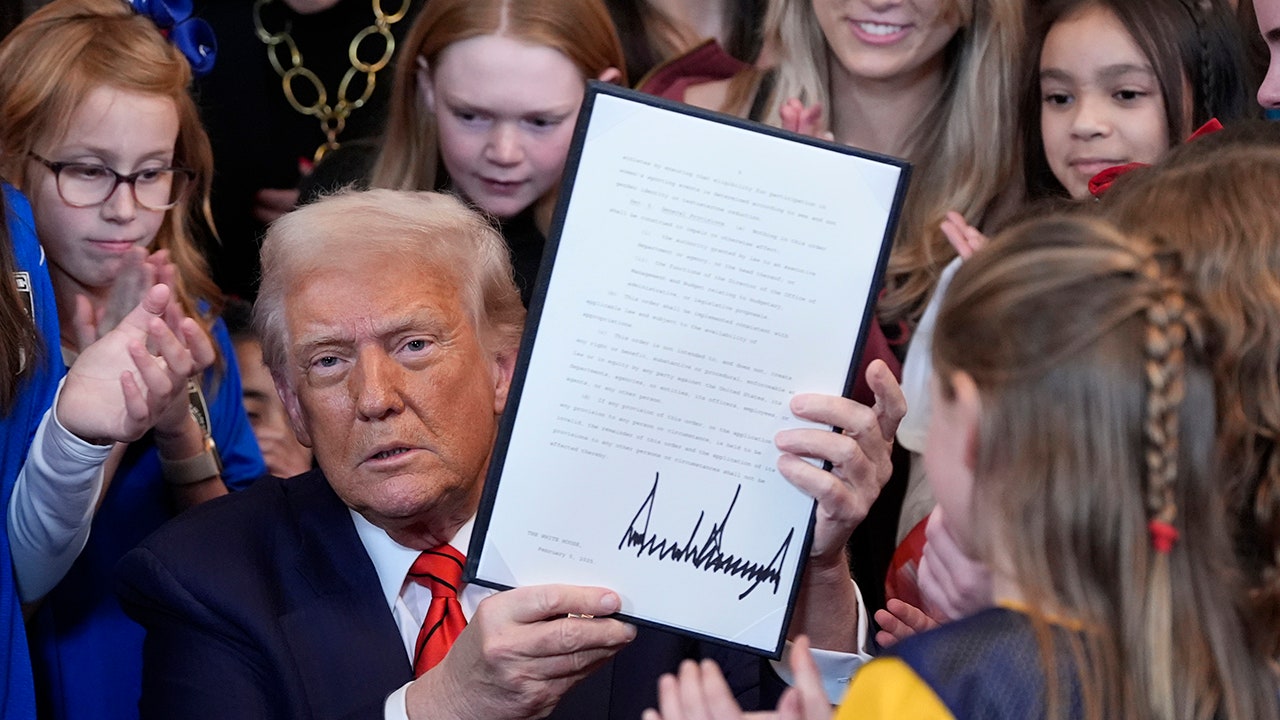Sports
Former college tennis star calls on Trump to work with NCAA on better trans-athlete policy: ‘Light it on fire’

Kim Jones Calls for NCAA to Revise Transgender Athlete Policy
Kim Jones, a former All-American collegiate tennis player and co-founder of the Independent Council on Women’s Sports (ICONS), has urged President Donald Trump to take action against the NCAA’s new policy on transgender athletes, which she claims still contains significant loopholes. The NCAA recently reversed its previous stance on trans inclusion in women’s sports, following an executive order signed by President Trump that prohibited biological males from competing in women’s sports. However, Jones and other critics argue that the NCAA’s updated policy does not go far enough to protect female athletes and lacks clear barriers to prevent male athletes from competing in women’s categories. Speaking on Fox & Friends, Jones called on Trump to compel the NCAA to scrap its current policy and start over. “Call the NCAA back to the table and tell them to put the policy in the garbage can, light it on fire, and start over,” she said. Her message reflects the growing frustration among advocates for women’s sports who believe the NCAA’s policy is insufficient to ensure fairness and safety for female athletes.
The NCAA’s Response to Critics
In response to the criticism, the NCAA released a statement to Fox News Digital, clarifying its position on transgender athletes. A spokesperson for the organization emphasized that the policy explicitly prohibits trans athletes from competing in women’s categories based solely on changes to their birth certificates or other forms of identification. “The policy is clear that there are no waivers available, and athletes assigned male at birth may not compete on a women’s team with amended birth certificates or other forms of ID,” the spokesperson said. However, Jones and other critics argue that the policy lacks accountability and oversight, leaving room for potential exploitation. They point out that while the NCAA’s statement seems definitive, the actual policy document does not explicitly address issues like birth certificate amendments or provide clear mechanisms for enforcing its rules.
The Birth Certificate Loophole
One of the most contentious issues with the NCAA’s policy is the potential for transgender athletes to bypass restrictions by altering their birth certificates. In 44 U.S. states, individuals are allowed to change the sex listed on their birth certificates, while only six states—Florida, Texas, Kansas, Oklahoma, Tennessee, and Montana—prohibit such changes. Moreover, 14 states, including California, New York, Massachusetts, and Michigan, permit individuals to change their birth certificate sex without requiring medical documentation. Critics like Jones argue that this creates a significant loophole in the NCAA’s policy, as athletes could potentially exploit these state laws to gain eligibility for women’s sports. They fear that without stricter measures, the integrity of women’s athletics could be compromised.
Jones’s Demands for a More Robust Policy
Kim Jones has outlined two key changes she believes are necessary to make the NCAA’s policy effective. First, she argues that membership on women’s teams must be restricted to biological females exclusively. Secondly, she insists on the implementation of a screening mechanism to ensure that no male athletes can compete in women’s categories. Jones made it clear that President Trump’s “No Men in Women’s Sports” executive order is far from being fully enacted. “It’s not remotely a done deal,” she said, emphasizing that the NCAA’s current policy lacks accountability, clear language, and a robust enforcement system. Without these measures, Jones and other advocates fear that female athletes will continue to be at a disadvantage, undermining the fairness and equality that women’s sports aim to uphold.
The Debate Over Male Practice Players
Another point of contention in the NCAA’s policy is the role of male practice players in women’s sports. The organization has stated that male practice players have long been a “staple” in college sports, particularly in women’s basketball, and that this practice will continue under the new policy. However, the NCAA has also noted that transgender athletes practicing with women’s teams will not be eligible for scholarships, according to a source familiar with the matter. This clarification has not been explicitly included in the official policy document, which has raised concerns among critics who argue that the lack of transparency creates confusion and potential loopholes. While the NCAA maintains that its policy is clear, the absence of detailed language on issues like scholarships and practice participation has left many questioning its enforceability.
The Uncertain Future of the NCAA’s Policy
As the debate over transgender athletes in women’s sports continues, the NCAA faces growing pressure to address the criticisms of its policy. Whether the organization will revise its stance to include stricter measures, such as mandatory screening processes or clearer language on eligibility, remains to be seen. Advocates like Kim Jones are unlikely to back down, as they believe the integrity of women’s sports is at stake. For now, the NCAA’s policy remains a subject of controversy, with the outcome hanging in the balance. The organization’s next steps will be closely watched by athletes, coaches, and policymakers across the country, as the fight for fairness and equality in women’s sports continues.











